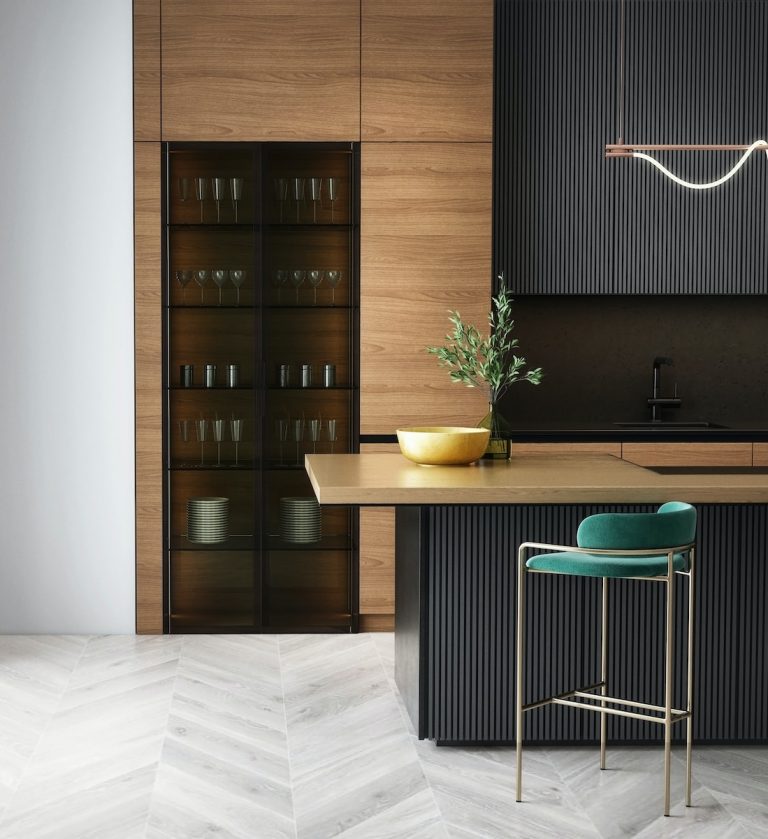Kitchen worktops are the focal point of every kitchen, offering both a functional surface and enhancing the overall aesthetic of the space. Among the various materials available for worktops, wooden kitchen worktops have gained considerable popularity due to their natural beauty, warmth, and versatility. Wood Worktops Ltd specialises in providing an extensive selection including Solid Oak, Iroko, Maple and Walnut Worktops.
In this article, we explore the lifespan of wooden kitchen worktops, concentrating on factors that contribute to their durability and the significance of proper care and maintenance.
Factors Affecting the Longevity of Wooden Worktops
When investing in a wooden kitchen worktop, it’s essential to understand the factors that affect their longevity. Several elements contribute to the lifespan of a wooden worktop, including the type of wood, quality of craftsmanship, and environmental conditions.
The type of wood is a critical determinant of a worktop’s durability. Hardwoods such as oak, maple, walnut, and iroko are known for their robustness, withstanding daily wear and tear.
Quality craftsmanship also plays a crucial role in the longevity of wooden worktops. Skilled artisans utilise advanced techniques to ensure maximum durability while preserving the wood’s natural allure. Employing proper joinery methods and choosing high-quality hardware can significantly impact the worktop’s lifespan.
Lastly, environmental conditions, such as humidity and temperature fluctuations, can affect the longevity of wooden worktops. Wood is a natural, porous material that expands and contracts with variations in moisture levels. Ideally, maintaining a consistent environment with moderate humidity is vital for preserving your wooden worktop’s integrity and appearance.
Maintenance and Care Tips for Maximising Your Worktops Lifespan
To ensure the enduring beauty and functionality of your wooden worktop, proper care and maintenance are essential. By following these guidelines, you can maximise the lifespan of your investment.
Regular Cleaning: Keep your worktop free from dirt and debris by wiping it down with a soft, damp cloth and mild soap. Avoid abrasive cleaners, as they can damage the wood’s surface.
Oiling: Oiling your wooden worktop regularly is crucial for maintaining its lustre and preventing water absorption. Use a high-quality oil designed specifically for wooden worktops, and follow the manufacturer’s instructions for application frequency.
Prevent Water Damage: Prolonged exposure to moisture can cause warping and discolouration. Ensure that your worktop is well-sealed and promptly wipe up any spills or standing water.
Protect From Heat & Scratches: Avoid placing hot pots and pans directly on your worktop. Use trivets or heat-resistant mats to protect the surface from burns and scorch marks. Moreover, always use cutting boards to prevent scratches and dents.
Repair Minor Damage: If your wooden worktop develops minor scratches or dents, gently sand the affected area and reapply oil to restore its beauty.
In summary, the durability of wooden kitchen worktops is influenced by factors such as wood type, craftsmanship, and environmental conditions. Selecting a high-quality wooden worktop from a trusted supplier like Wood Worktops Ltd, and adhering to recommended maintenance and care practices, can substantially prolong the life of your worktop.
Experience the natural elegance and enduring charm of hardwood worktops, which enhance both the visual appeal and functionality of your kitchen. By taking proper care of your wooden kitchen worktop, you can ensure it remains a beautiful and practical feature in your home for years to come.
